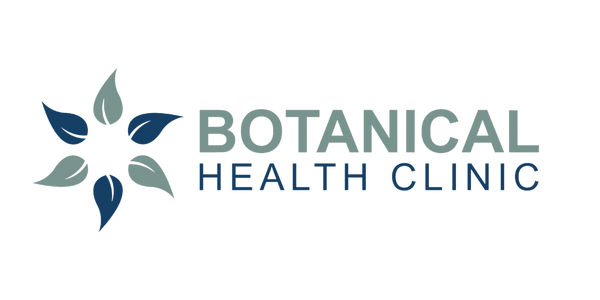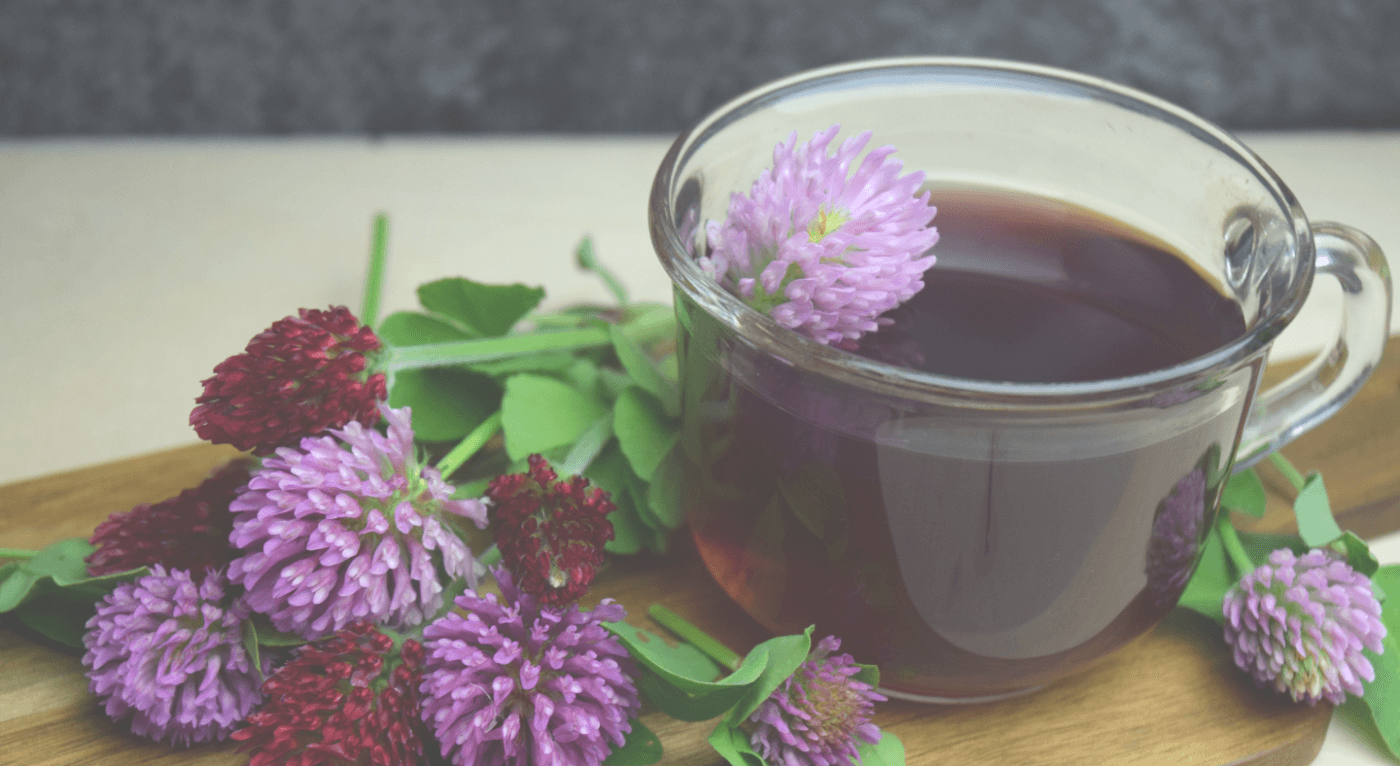Red Clover Trifolium pratense
Family: Fabaceae (Pea Family)
Plant parts used: leaves & flowers
Where this plant grows: Meadows & gardens. Native to Asia + Europe. Also grows all over North America
Energetics: Cooling
Taste: Salty & Sweet
Red Clover - ADHD Herbal Ally
Red Clover is popular with many folk herbalists, I do know the basics of the herb but have never looked at research or formally studied this herb. This herb is an ally for many co-occurring conditions that my ADHD patients complain of.
I also learned of its nitrogen-fixing properties for gardening in my permaculture classes and I have always dreamed of a field of Red Clovers (before I moved to the beach).
So I decided to formally research it!
Red Clover - Trifolium pratense is a beautiful, common meadow flower that is native to Europe and is one of the earliest species introduced to America as early as the 1500’s. As a member of the pea family it is a wonderful garden plant that is known to fix/balance nitrogen in soil making it a wonderful crop companion for many gardens, as it also appears to be safe growing next to most plants. The genus, Trifolium, means three leaves and refers to the 3-parted leaf. The species, pratense, means 'of the meadows’.
Trifolium pratense has been historically used as an alterative herbal remedy. Alterative herbs have an infinity for a certain body part and help restore overall life, wellness, and vitality.
Many of the classic texts note use for respiratory health, especially pertussis aka Whooping Cough. Red Clover infusions have also been noted in treatments in other spasmodic coughs, bronchitis, and laryngitis. As an herb known to restore overall health, vitality, and tissue healing as well, Trifolium pratense has been noted as an remedy to treat cancer and both stomach skin ulcers as far back as 1898.
What I loved to find out out during my historical research of this plant is how there was mention of mental health support and Red Clover offers support for ADHD.
Ellingwood's Therapeutist suggests Red Clover is brain food. It is noted to support the overworked brain, memory recall, confused ideas, and other “mental” defects. It is assumed to support circulation to the nervous system, “capillary systems”, and circulation to the extremities. I love this as I knew I would find out Red Clover is a supportive herb for ADHD and it looks like that was suspected as far back as 1908.
ADHD as a diagnosis did not exist in the late 1800’s and early 1900’s but I definitely feel like they’re describing ADHD with this historical quote that I found:
“I desire to call the attention of the readers of this journal to the specific action of trifolium in improving the nutrition of the brain. I believe this influence of this remedy is not generally known. When an individual is overworked, when there is general mental failure, or especially where there is loss of memory of words, or when there is confusion of ideas from functional causes, I find trifolium to be the one indicated remedy. Also when there is weakness of the lower extremities, or of the feet from deficient capillary circulation. It will also benefit those cases where chilblains occur readily and persist.”
Dosing for Trifolium pratense
“Roses are red, violets are blue. If health is important, drink red clover brew!”
Traditionally and in modern times Red Clover is used in infusion, tea or tincture. It is best extracted in water. In more recent times a standardized extract has become available and gained interest because of the isoflavones content.
Because of the mineral content in Red Clover it is also a good herb to extract in vinegar. It is interesting that no dosing guidelines popped up for Red Clover in my research but many of the recipes for Red Clover are vinegar based.
In both the historical and contemporary resources that I cited, the dosing for Trifolium pratense is similar.
Historical Dosing Suggestions:
Kings Herbal Dispensatory
- Infusion: “Strong infusion” is to be given in ½ fluid ounce, every 1 or 2 hours, throughout the day.
- Tincture: a strong tincture may be prepared from the recently dried flowers in 50% alcohol. The dose of this will range from 1 to 60 drops.
Modern Dosing Suggestions:
Herb Mentor
- Tea: Up to 1 ounce of dried flowers/leaves in infusion daily
- Tincture: 1:5, 30% alcohol: 3-5 mL up to three times a day
Natural Medicines Database
- Standardized extract: 40-80 mg daily for maximum one year
Medical Herbalism
- Tincture: 1:5, 40% alcohol: 2 - 4 ml 3x daily
- Tea Infusion: 1-3 teaspoons in 8 ounces boiling water 3x daily
Red Clover Herbal Formula
Here is a lung tonic recipe that I love: It was provided to me while I was a clinical herbalist student at the Herbal Academy. This is good herbal remedy for anyone with a respiratory cold or a cough.
This formula has combination of aromatic and lung tonic herbs, enjoy this tea to keep the lungs happy and healthy!
Ingredients
- 2.5 g lemon balm (Melissa officinalis) aerial parts 1 g ) calendula (Calendula officinalis) flower
- 1 g mullein (Verbascum thapsus) leaf
- 1 g red clover (Trifolium pratense) aerial parts
- 0.5 g peppermint (Mentha x piperita) leaf
Directions
- Blend all the herbs together.
- Use approximately 6 g (0.2 oz) per 240 mL (8 fl oz) boiling hot water.
- Steep for 10 to 20 minutes, covered.
- Strain through cheesecloth to remove irritating hairs from the mullein, sweeten if needed and enjoy!
For myself , I think I am going to try a nutritive nervine formula when it’s red clover season this spring. I plan to make some vinegar based herbal preparations. Maybe blend with lemon balm, red clover, & thyme oxymel. YUM!
In the meantime, I am enjoying a few herbal tea blends from Mountain Rose Herbs that contain red clover in their formulas.
Modern Use + Clinical Evidence
Red Clover can help balance hormones and stabilize moods. It can be a wonderful herbaly ally for ADHDers that are going through the menopause transition or ADHDErs who experience PMDD and severe PMS symptoms.
A randomized, double-blind, placebo-controlled trial that I chose to review tested the effectiveness of Trifolium pratense (Red Clover) isoflavones to reduce hot flashes in menopausal women. 30 women (out of 44) were randomized and selected. Their ages ranged from 49 - 65 years old. They met the criteria of more than 12 months history of amenorrhea and experience more than 5 hot flashes a day.
The participants were randomized to either receive two tablets of the Red Clover extract or two placebo tablets every morning for 12 weeks. A Red Clover extract branded Promensil was used.
Both types of tablets (active and placebo) were identical in size, color, and weight. Participants were given a list of ‘foods to avoid’, which included legumes and isoflavone supplements.
All 30 participants recorded the number of daily hot flashes they experience each day of the study. The hot flash scores were counted and evaluated at weeks 4, 8, and 12.While only 18% of the placebo participants reported less severe hot flushes after 12 weeks, 73% of the Promensil participants reported an improvement at weeks 8 and 12. At the end of the study there was a significant decrease in hot flushes of 44% between the active and placebo group.
You can also check out the metal analysis of Red Clover extract research here
It’s important to note that dosing does matter, as a lower dose extract of Red Clover did not always yield the same results. This is the brand used in many of the research studies: Promensil
Safety Profile for Trifolium pratense (Red Clover)
- It is recommended to avoid red clover in people who have (or have had) estrogen-receptor positive cancer.
- There has been some concern that red clover may thin the blood, but this seems to be a concern for red clover that is fermented or not properly dried.
- Avoid blood thinner and anticoagulants including herbs.
- Red clover has not been established as safe during pregnancy and lactation.
- There is one case study that may show a possible interaction with high doses of methotrexate.
- Avoid Red Clover while taking caffeine-containing herbs and supplements; use caution with ADHD stimulants.
I would love to hear from you if you have tried ADHD in your ADHD management or interventions? How did it go for you?
References
- Red Clover. NCCIH. Accessed January 5, 2023. https://www.nccih.nih.gov/health/red-clover
- Forêt R de la. Red Clover Monograph. HerbMentor. Accessed January 5, 2023. https://herbmentor.learningherbs.com/herb/red-clover/
- Red Clover, Trifolium pratense L. Accessed January 29, 2023. https://www.friendsofthewildflowergarden.org/pages/plants/redclover.html
- Trifolium.—Red Clover. | Henriette’s Herbal Homepage. Accessed January 29, 2023. https://www.henriettes-herb.com/eclectic/kings/trifolium-prat.html
- Trifolium as a Brain Food. | Henriette’s Herbal Homepage. Accessed January 29, 2023. https://www.henriettes-herb.com/eclectic/journals/elth/elth1908/07-trifolium.html
- Academy H. Red Clover, Red Clover, Bring Healing on Over - Red Clover Tea. Herbal Academy. Published April 9, 2014. Accessed January 8, 2023. https://theherbalacademy.com/red-clover-tea/
- Red Clover. Natural Medicines Database. Therapeutic Research.https://naturalmedicines.therapeuticresearch.com/databases/food,-herbs-supplements/professional.aspx?productid=308
- Red Clover. NCCIH. Accessed January 5, 2023. https://www.nccih.nih.gov/health/red-clover
- Hoffmann D. Medical Herbalism: The Science and Practice of Herbal Medicine. Healing Arts Press; 2003.
- Academy H. Red Clover, Red Clover, Bring Healing on Over - Red Clover Tea. Herbal Academy. Published April 9, 2014. Accessed January 8, 2023. https://theherbalacademy.com/red-clover-te
* I do not have any affiliation with the brands that I mention in this article. I was a happy student at Herbal Academy and the Promensil is just a brand I discovered in research. I would not hesitate to try it tho


